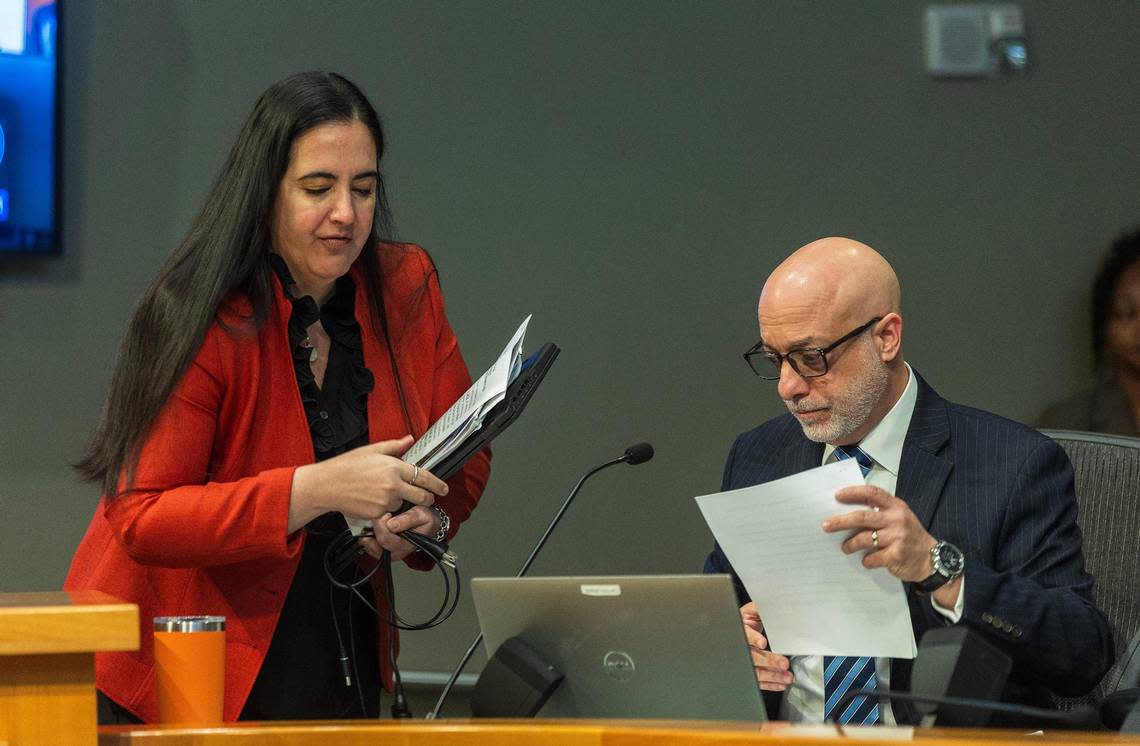Miami will try to settle racial gerrymandering lawsuit that challenges voting map

Days before a scheduled trial, Miami will attempt to settle a federal lawsuit accusing the city of adopting an unconstitutional, racially gerrymandered voting map in 2022.
Commissioners on Thursday unanimously authorized the city’s attorneys to negotiate a settlement that would end a lawsuit that rocked city politics in 2023 by forcing the city to shift district boundaries months before municipal elections, sparking legal battles over who could run for office.
A group of city residents and community groups represented by attorneys with the American Civil Liberties Union are arguing that commissioners fixated on preserving the ethnic makeup of the commission by using racial quotas to make the new map, packing Hispanic and Black voters into districts.
Commissioner Damian Pardo sponsored Thursday’s resolution.
“It means to do everything possible so that we don’t continue proceedings and keep accruing legal costs, which would be very significant in a trial,” Pardo said during the commission meeting.
Commissioners made the decision hours before a judge held a status conference on the case Thursday afternoon. After the hearing, attorneys from both sides told the Miami Herald that the case is still scheduled to go to trial Monday morning.
It is unclear how the city will pursue a settlement in the coming days.
“The plaintiffs have always been open to working with the City in good faith to achieve a resolution that protects the constitutional rights of all Miami residents,” said the Rev. Nathaniel Robinson III, a board member for Grove Rights and Community Equity (GRACE), one of the community groups in the lawsuit.
Federal judges have so far agreed with the ACLU in preliminary hearings, signaling that the city could face an uphill battle in court.
In May, U.S. Magistrate Judge Lauren F. Louis cited commissioners’ own statements from public hearings in the spring of 2022 while saying race was too central to the city’s decisions on the voting map.
The magistrate pointed to a February 2022 meeting where Comissioner Joe Carollo, one of three Hispanic men on the board at the time, said if the city didn’t break up Miami neighborhoods into different districts “the outcome of that would be that guys like — that look like us, with last names like us — in the near future might not be elected necessarily from the districts we represent.”
Weeks later, U.S. District Judge K. Michael Moore agreed with the magistrate and ordered the city to draw a new temporary map for the November elections.
The temporary map approved in June excluded the family home of Miguel Angel Gabela, then a candidate for the District 1 seat. A court battle over the next few months concluded with an appellate panel from Florida’s Third District Court of Appeal confirming that Gabela was eligible to run after he moved into an investment property he owns inside the changed district boundaries.
Gabela won the election over incumbent Alex Díaz de la Portilla, who was suspended from office after he was arrested on corruption charges. He pleaded not guilty and continued to run for his old seat, but he lost the runoff election in late November. Díaz de la Portilla has sued Gabela, alleging that Gabela didn’t live in the duplex he owns in the updated district boundaries. Both cases are pending.
In January, the commission voted to move Gabela’s family home back into District 1.
READ MORE: Miami City Commission votes for Miguel Gabela’s home to be drawn back into his district

